Product pictures
| Amount Per 1 package, 272 g | |||
| Calories | 250 Kcal (1047 kJ) | ||
| Calories from fat | 45 Kcal | ||
| % Daily Value* | |||
| Total Fat | 5g | 8% | |
|---|---|---|---|
| Saturated Fat | 2g | 10% | |
| Cholesterol | 35mg | 12% | |
| Sodium | 870mg | 36% | |
| Total Carbs | 34g | 11% | |
| Sugars | 3g | 12% | |
| Dietary Fiber | 3g | 12% | |
| Protein | 16g | 32% | |
| Iron | 0.9mg | 5% | |
| Calcium | 60mg | 6% | |
* Percent Daily Values are based on a 2000 calorie diet. Your daily values may be higher or lower depending on your calorie needs.
Find out how many calories should you eat.
Ingredients And Nutrition Overview
Best
choice Good
choice Poor
choice Avoid
it!
choice Good
choice Poor
choice Avoid
it!
-
WeightWatchers Points: 4.8, PointsPlus: 6, SmartPoints: 7
WeightWatchers Points are estimated by carbohydrates, fats, protein and fiber in product. They are not an affirmation of better quality or nutritional value of the product or its manufacturer. Only way to count for dieters. Less points are better.
Read more at Weight watchers diet review -
Keep an eye on the cholesterol.
Today cholesterol is no longer a villain. The 2010's USDA guidelines told us to limit cholesterol from foods
Now experts say cholesterol is "not a nutrient of concern" because cholesterol from foods doesn't cause higher blood cholesterol levels.
Nevertheless try to consume no more than 300 milligrams daily.
This product contains more than 12% of your daily cholesterol intake.
If you still are on a low cholesterol diet, please keep in mind:
- nutritionists are not recommending you go out and binge on cheeseburgers and fries.
- 10% of your daily allowance can quickly become 50% when a hamburger turns into double cheeseburger.
-
Want to lower the cholesterol intake? Here are some advices:
- Try to limit your cheese, dairy and meat intake to one item per meal.
- Avoid meals with multiple sources of cholesterol (chicken with cheese, junk food)
- Try to indclude in your diet low- or nonfat dairy, seafood, legumes and nuts.
- Choose water instead of milk for your coffee.
-
Salty! Has over 36% of the daily sodium max
The average American consumes 5,000 mg of sodium daily — twice the recommended amount amount of 2400mg for healthy adults, this is 1 teaspoon of salt.
For medical reasons many people should not exceed 1500mg of sodium.
Surprisingly, you're responsible for only 15% of the sodium in your diet the bigger part - 75% of the sodium that you consume each day comes from processed foods, not home cooking or the salt shaker.
Excess sodium intake increases the risk of high blood pressure, hypernatremia, hypertension, cardiovascular disease and other heart problems.
Are these reasons enough to cut the sodium intake? No doubt! -
Convert Salt tsps to Sodium mg easily
Salt (NaCl) is not excactly sodium (Na).
It is not right to use these terms as synonyms.
The FDA recommended limit of sodium is 2,300 mg per day (or even less - about 1500 mg while one is on low sodium diets).
This is much less than the weight of salt.
(5,750 mg per day or 3,750 mg for low sodium diet) and not so convenient to calculate.
Know how much sodium is in your salt - without a calculator:
1/4 tsp salt = 600 mg sodium
1/2 tsp salt = 1200 mg sodium
3/4 tsp salt = 1800 mg sodium
1 tsp salt = 2300 mg sodium -
Great! Contains less than 1.5 tsp of sugar.
Great! Contains less than 1.5 tsp of sugar per serving!
-
Great source of fiber! More than 12% daily!
Eat more fiber. You've heard it many times. But why it is so good for your health?
Dietary fiber is best known for its ability to make our digestion going right.
So want to prevent or relieve constipation - eat more fiber!
There are also other great health benefits as well, such as lowering your risk of diabetes, heart disease and cancer, and helping to maintain a healthy weight by helping to feel you full longer.
The best source of fiber are fruits, vegetables, whole grains and legumes and not processed foods with added fiber. -
Carrageenan is an additive made from seaweed.
It is used as a thickener in products such as ice cream, jelly, chocolate milk, infant formula, cottage cheese.
It is a vegetarian and vegan alternative to gelatin.
It has been used for hundreds of years in Ireland and China, but only made headway into modern food processing in the last 50 years.
The processing steps after harvesting the seaweed include drying, grounding, filtration, treatment with potassium hydroxide, removal of cellulose by centrifuge, concentration by evaporation, drying, and grounding.
Interestingly, the Philippines account for the vast majority of the world supply of carrageenan.
In some animal studies, carrageenan was shown to cause intestinal lacerations and tumors.
A 2001 meta-study of 45 peer-reviewed studies concluded that carrageenan consumption may result in gastrointestinal malignancy and inflammatory bowel.
The FDA has approved carrageenan as safe, basing its decision on industry funded studies.
European agencies and the World Health Organization have also deemed carrageenan safe, with the exception of infant formula.
The fear is the a baby's gut may be unable to handle the large carrageenan molecules.
In some individuals carrageenan may cause intestinal discomfort or worse. -
Contains MSG-like ingredients
People feeling reaction to MSG may also react adversely to MSG-like substances.
Glutamates or chemically similar items are added to improve a product's taste.
Here is a short list of common MSG-like substances:
- Yeast extract
- Autolyzed yeast
- Hydrolyzed proteins
- Textured proteins
- Anything "enzyme modified"
Allergens
Corn Allergy, Soy Allergy, Lactose Allergy, Milk Allergy, Gluten Allergy, Wheat Allergy, Sesame Allergy
Roast turkey Ingredients
Potatoes, Water, Glazed Turkey Tenderloins (Cooked Turkey Tenderloins, Water, Modified Cornstarch, Seasoning [Autolyzed Yeast Extract, Maltodextrin, Salt, Turkey Flavor, Turkey Stock, Flavor, Gum Arabic], Carrageenan, Canola Oil, Sodium Phosphate, Natural Flavoring, Salt, Potassium Chloride, Paprika), Cream, Croutons (Enriched Flour [Wheat Flour, Niacin, Iron, Thiamin Mononitrate, Riboflavin, Folic Acid], High Fructose Corn Syrup, Salt, Contains 2% or Less of: Partially Hydrogenated Soybean and/or Cottonseed Oils, Yeast, Distilled Vinegar, Yeast Nutrients [Monocalcium Phosphate, Calcium Sulfate, Ammonium Sulfate], Cornstarch, Soy Lecithin, Soy Flour), 2% or Less of Onions, Celery, Skim Milk, Modified Cornstarch, Chicken Fat, Bleached Wheat Flour, Salt, Sour Cream (Cultured Cream, Skim Milk, Enzymes) Soybean Oil, Turkey Flavor (Flavor, Salt, Dried Turkey Stock, Maltodextrin, Sesame Oil [Contains Soy]), Spices, Yeast Extract, Modified Tapioca Starch, Seasoning (Maltodextrin, Flavor, Enzyme Modified Butterfat), Mono- & Diglycerides, Butter Flavor (Maltodextrin, Natural Flavor, Annatto & Turmeric Color), Caramel Color, Seasoning (Wheat Starch, Extracts of Annatto and Turmeric Color, Natural Flavor), Carrageenan with Dextrose, Potato Starch, Dehydrated Garlic, Cultured Whey, Carrageenan, Potassium Chloride.
You Might Also Like
% RDI of Main Nutrition Facts
13%
of RDI* (250 calories) 272 g
-
Cal: 12.5 %
-
Fat: 7.7 %
-
Carb: 11.3 %
-
Prot: 32 %
-
0%25%75%RDI norm*
Calories Breakdown
- Carbs (55.5%)
- Fat (18.4%)
- Protein (26.1%)
Get Your Recipe of Health!
Follow RecipeOfHealth on Facebook!

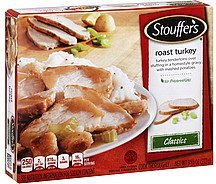

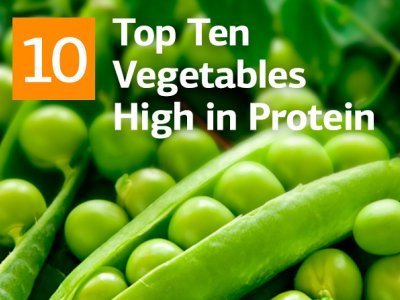

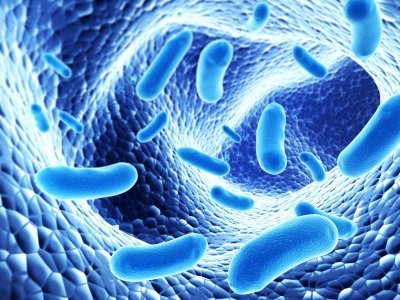






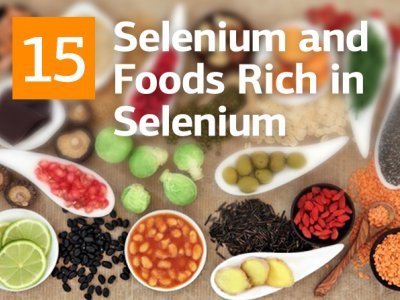
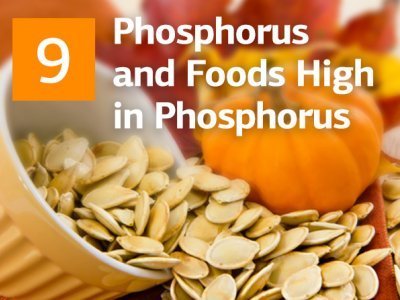
Add your comment